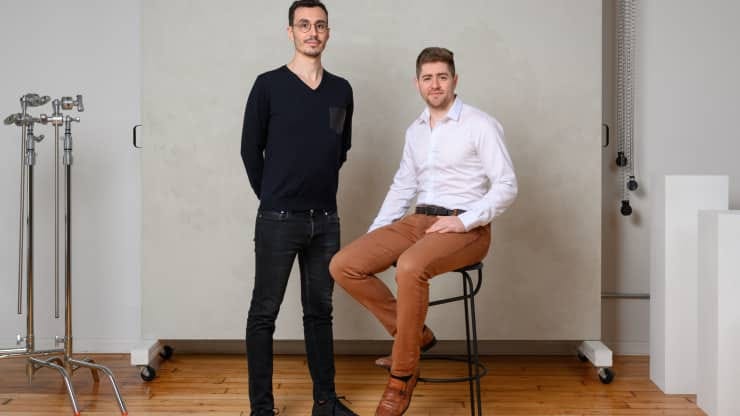This article is part of Fintech Leaders, a newsletter with over 30,000 dreamers, entrepreneurs, investors, and students of financial services. I invite you to share and sign up here!
I sit down with the very genuine Eric Glyman, Co-Founder & CEO of Ramp, a finance automation platform providing an all in one banking solution for businesses.
Founded less than three years ago, Ramp has scaled incredibly fast and is now the fastest growing corporate card in the US, having raised almost half a billion dollars from investors like Founders Fund, Coatue, Stripe, Goldman, and more.
Eric is a second-time fintech entrepreneur, which made this conversation especially interesting. We discussed:
Ramp’s secret sauce that has allowed them to scale extremely fast, while maintaining product quality and client satisfaction.
“There are certain parts of the org that are designed explicitly for very fast iteration and moving extremely quickly... At some point, once you've determined product market fit… it shifts to a different style of engineering, which is about robustness, incredible foundation, and low latency.”
Leadership lessons. Why startup founders with product market fit should prioritize hiring the highest quality of people and building internal processes.
“I spend about 40% of my time just on hiring and thinking through processes and meeting with candidates. Most people are really surprised on the time I spend with them, and it's because I’m gonna count on them to make great decisions.”
In Partnership with…
The traditional approach to compliance is manual, messy, and disparate. It’s time to reimagine compliance.
The platform guides customers through the adoption of proper SOC 2 operations. We prescribe what needs to be implemented and provide tools to demonstrate compliance to any regulators and businesses.
Laika unifies the entire compliance process for every audit, questionnaire, and security control.
Make minimizing risk easier than ever.
Strength of the Capital One school. Lessons learned from his time at Capital One and why most fintechs want to hire Capital One alums.
“[Capital One] is really driven by this business analyst skillset of, how do you really go and use an information based strategy, test and learn, understand various hypothesis, iterate on that, and use data to make decisions.
Today, many fintechs are all trying to hire people who were at Capital One or who are there now. It's probably the most common thread if you look at risk and underwriting teams.”
A window into Eric’s vision of the future of business banking, where most tasks will be automated and companies will spend less money and time managing their banks… and a whole lot more!
“Whether it's us or others, I think the world will be a better place if customer’s financial partners and software partners are thinking not just about how do they charge you more, higher prices for a SaaS offering, or get you to use their product more button. But instead say ‘how can I genuinely help someone spend less money and time?’”
Want more podcast episodes? Join me and follow Fintech Leaders today on Apple, Spotify, or your favorite podcast app for weekly conversations with today’s global leaders that will dominate the 21st century in fintech, business, and beyond.
Emerging Fintech Leaders
Three early-stage fintech companies doing amazing things
💎 TOPI
Just this week, Berlin’s Topi emerged from stealth with the announcement of their $4.5 million pre-seed round, co-led by Creandum and Index Ventures. Topi is a B2B payments solution that brings BNPL’s advantages to business customers. The B2B channel has been largely overlooked in payments innovation thus far, but with the emergence of so many customer-friendly B2C options, its value proposition is clear. With Topi, SMEs can optimize purchasing decisions and put capital to better use, freeing up time and resources for actual innovation and pursuing its growth strategy. Hiring now!
👥 Co-Founders: Estelle Merle (LinkedIn / Twitter) and Charlotte Pallua (LinkedIn / Twitter)
🛍 PLENTINA
Plentina's mobile app enables consumers in the Philippines to make everyday purchases via a "buy now, pay later" structure, which offers the financial advantages of a credit card and helps to avoid predatory lenders. Plentina users can take advantage of the company’s partnerships with trusted Filipino companies to build credit from everyday essential purchases like groceries and wireless services. Unlike other models, Plentina's intuitive, cohesive and nimble platform has no hidden fees, allows easy repayment and helps consumers build credit history. As a result, it is well poised to help create a better, more secure financial future for millions in emerging markets. Plentina has recently closed a $2.2 million seed round and counts TMV.vc and GFC as backers. Now hiring!
👥 Co-Founders: Earl Valencia (LinkedIn / Twitter) and Kevin Gabayan (LinkedIn)
🔢 QUILTT
Today, delivering great fintech-enabled experiences requires too much repetitive & costly data engineering work, from managing endless integrations to wrangling messy financial data into holistic customer profiles. Quiltt provides low-code infrastructure to empower more companies to launch and scale consumer fintech experiences, serving as a flexible financial data backend. With Quiltt, businesses can source, orchestrate and push customer data to any destination, freeing up precious engineering resources to be put to use on true differentiators. Early partners and investors include Motivate Ventures, Hustle Fund, Plaid, Capital Factory, and DCU Fintech Innovation. The company is now raising its seed round and hiring!
👥 Co-Founders: Mark Bechofer (LinkedIn / Twitter) and Ruben Izmailyan (LinkedIn / Twitter)
Want to break onto the fintech scene with a feature in our newsletter? Introduce us to your startup here!
-Thank you for reading!
Previous Episodes You May Enjoy:
Miguel Armaza is Co-Founder & Managing General Partner of Gilgamesh Ventures, a seed-stage investment fund focused on fintech in the Americas. He also hosts and writes the Fintech Leaders podcast and newsletter.





















Share this post